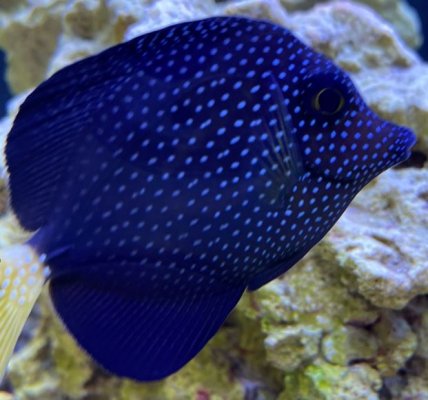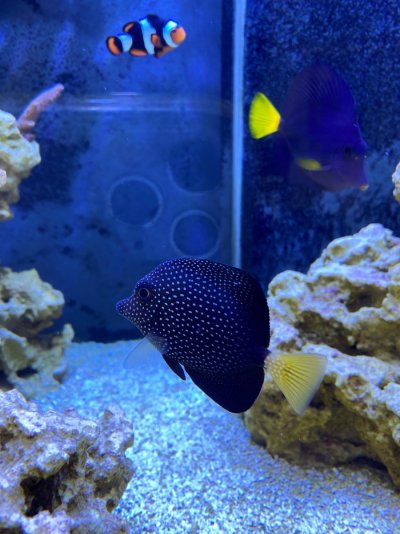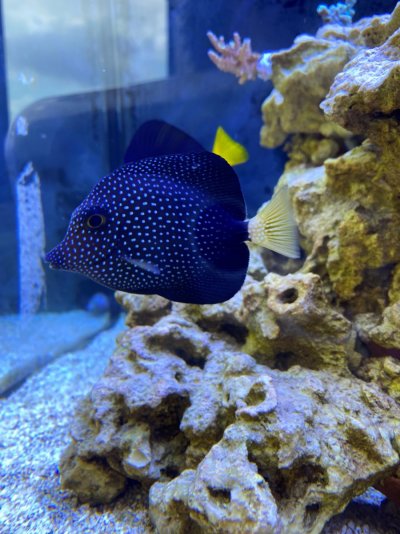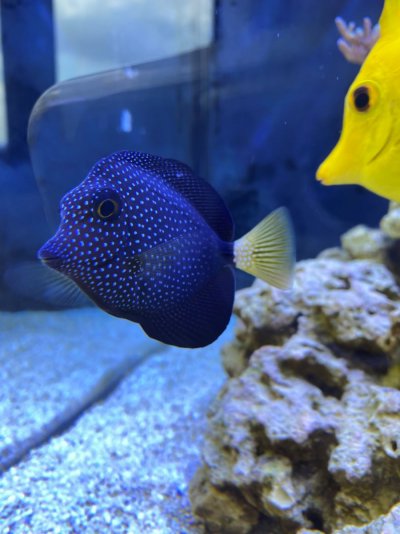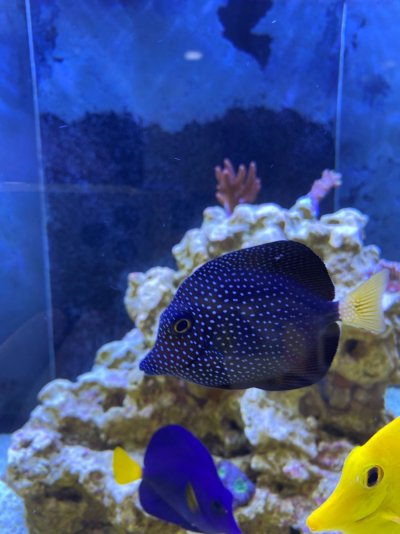Hi, I've had my Gem Tang for almost 7 weeks coming 8 now, first 6 weeks is in perfect health, no issues whatsoever.
But for the past couple weeks I noticed that there is a white spot on the dorsal fin area of the fish. It comes and goes every couple days. At it's worst, the fish will have a tiny hole (I can kind of see through), but it heals up on its own after 2-3 days. Then after 2-3 days it comes back again. Fish is otherwise healthy (no other visible aliments, strong swimming, greedy feeder)
It was pretty hard to take photos, but I think I've got a fairly good shot this time. Looks like an external parasite but I can't be sure. No other fishes in my tank are affected, all seem healthy too. Water parameters are good (Nitrate less than 1ppm, phosphates less than 0.05, PH 8.3, Salinity 35ppt).
Can anyone advise what it is and what I should do?
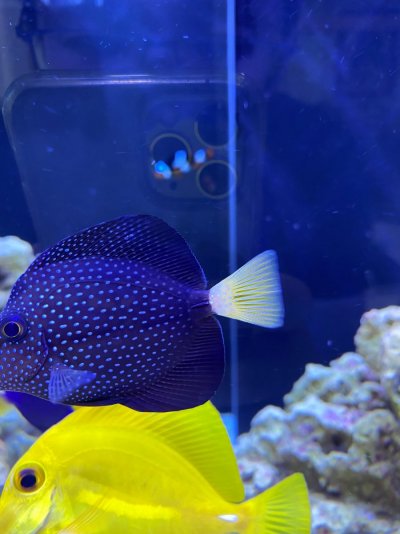
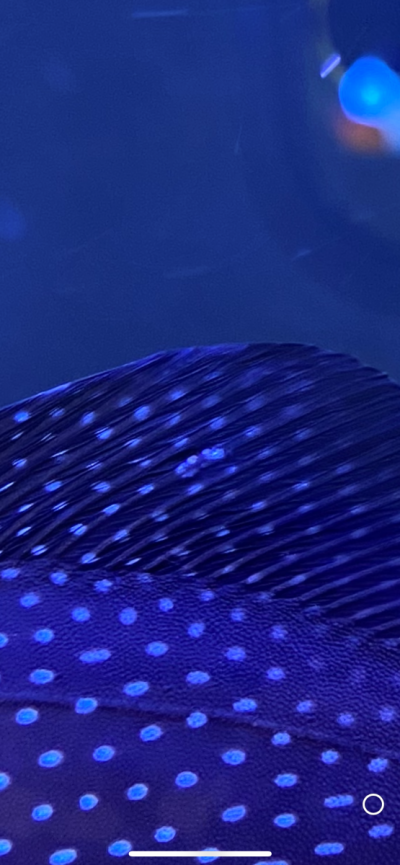
But for the past couple weeks I noticed that there is a white spot on the dorsal fin area of the fish. It comes and goes every couple days. At it's worst, the fish will have a tiny hole (I can kind of see through), but it heals up on its own after 2-3 days. Then after 2-3 days it comes back again. Fish is otherwise healthy (no other visible aliments, strong swimming, greedy feeder)
It was pretty hard to take photos, but I think I've got a fairly good shot this time. Looks like an external parasite but I can't be sure. No other fishes in my tank are affected, all seem healthy too. Water parameters are good (Nitrate less than 1ppm, phosphates less than 0.05, PH 8.3, Salinity 35ppt).
Can anyone advise what it is and what I should do?








